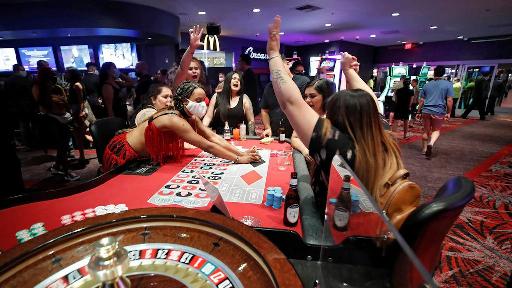Around tens of thousands of casino workers in Las Vegas still remain furloughed and at the same time, according to Nevada, the state’s unemployment fund is running dry. Nevada’s Department of Employment, Training, and Rehabilitation revealed that the trust insurance fund that used to pay out all unemployment claims has an account of $0. The account had around $760 million in this year’s June, however, the continuing filings for COVID-19 have tremendous leisure and gaming hospitality have observed the money dispersed.
Claimants do not fear, but, as Nevada is borrowing money as funds from the government to pay unemployment. The Silver State has loaned $14.57 million already as unemployment money through the Social Security Act’s Title XII.
Las Vegas Casinos
The unemployment rate in Nevada dipped around 1.8% points from October to November’s 10.1%. This is still substantially more than the local 6.7 percent unemployment rate. Silver State’s unemployment rate in November 2020 is also around 6.7% higher than in November of 2019.
The Bureau of Labor Statistics of the US reports around of approximately 3 million people are presently employed in the gaming industry of Nevada. The number is around 13.9% down compared with that of November of 2019. Nevada Casinos Continue to limit its 25% capacity on their own gaming floor. The Governor of the state Sisolak recently has extended the gaming controlling condition through January.
As of the month of November, there were only 21% fewer workers in the gaming industry who are employed in Las Vegas. The workforce of the industry has attained around 229,400, or roughly around 75% of the statewide captured figure. Las Vegas casinos sacked almost 1,900 workers in just November.
The state of Nevada which is running low in unemployment money might hurt and wound businesses in the near future as they are likely to help repay the loans of the federal government. Nevada Association of Employers’ CEO, Thoran Towler has said to the Review-Journal of Las Vegas that he thought there were really good chance opportunity and the possibility of a tax hike on unemployment insurance to pay the loans.



